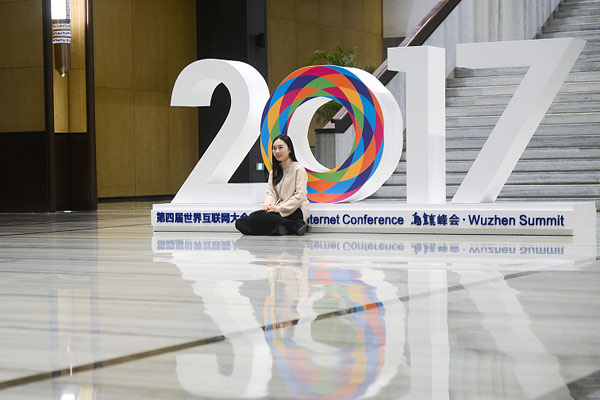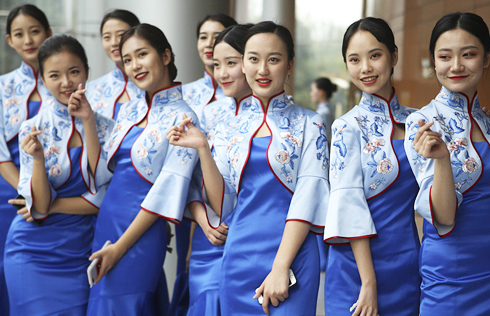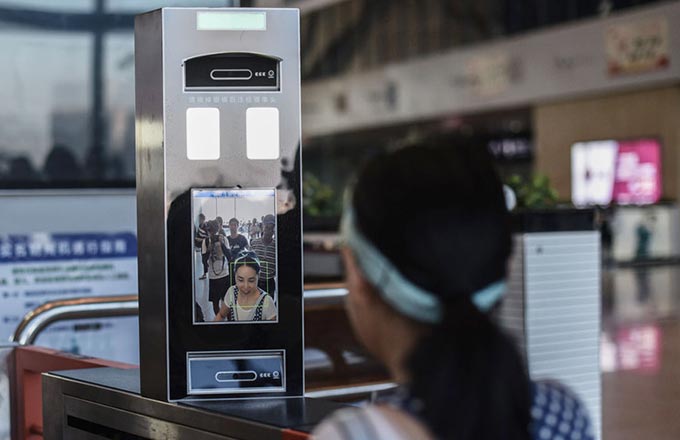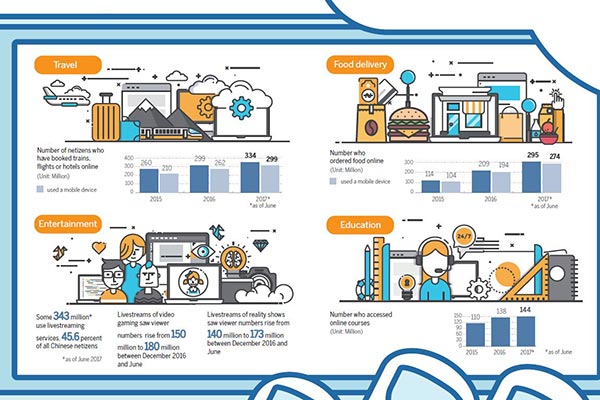Yangtze River Delta region expects boost
Manufacturers and traders in the industrial heartland of the Yangtze River Delta region anticipate new business opportunities arising from the Shanghai free trade zone, which was approved by the State Council on Wednesday.
For example, there is offshore trading. The purchase of goods, mainly industrial intermediary materials, from an overseas source for use in factories in another overseas market, is made possible by the zone, traders said.
"We are planning to launch a department to develop the offshore trading businesses with overseas suppliers and buyers to minimize the labor and transport costs for our clients," said Tang Xiaojie of Orient International (Holding) Co Ltd, a leading Shanghai-based export-import company.
"With a free trade zone in place, we will be able to buy raw materials and electronic parts from countries such as Japan and Germany and sell them to manufacturers in Vietnam, where labor costs are low," said Tang.
Tang added that most local export-import companies were waiting for breakthrough policies such as offshore trading to benefit with a larger range of businesses under a promising international platform.
The total value of imports passing through Shanghai Customs and the city was $801.3 billion last year, with exports valued at $436.8 billion, statistics from the Shanghai Customs District show.
"The trading environment, boosted by beneficial policies for local companies, will be improved with deductions for costs and higher efficiency," said Tang.
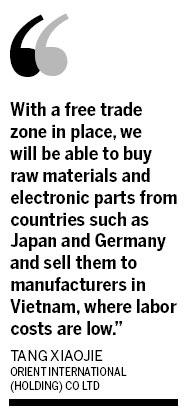
The free trade zone also is expected to offer more complete and transparent import- and export-related services, ranging from customs clearance and supervision to foreign currency management and quarantine inspection.
"We expect to spend less time on certain clearance procedures and get more chances to work with more overseas companies," said Luo Gang, chairman of Shanghai Ruinian Fine Chemical Industry Co, which exports chemicals, mainly to European countries.
Luo added that the free trade zone would attract some of his business partners to set up an office in the city to receive products from suppliers all over the country and ship them altogether abroad.
Also, developing small and medium-sized trading companies that want advanced foreign technology will be able to get in touch with potential high-end partners to produce more innovative products.
"To produce high-quality and branded items with advanced technologies from overseas more efficiently, we are looking forward to having a direct route to import machines and technologies with global standards," said Luo.
Wine importers in the city will also directly benefit from the free trade zone.
"The free trade zone will definitely bring more freedom for us importers to buy larger amounts of wine products from overseas at one time, more efficiently and by spending less money," said Tian Yu, general manager of Euro Shop Trade SRL, the first company in Shanghai to import wine from Romania in 1996.
As Tian explained, there is an importer of wine in the Waigaoqiao Free Trade Zone, which has already offered zero-tax measures for importing goods.
"If the free trade zone could supply services to import and temporarily store these very expensive wines, which currently are not allowed to be purchased directly by individuals, more wealthy businessmen and investors would be attracted to place orders regularly," said Tian.
Tian added that the free trade zone should upgrade with more innovative policies that haven't been applied yet in China.
In addition, the free trade zone will also enable Shanghai to become the international shipping center as well as a trading center in the near future.
"Shanghai is trying to learn from Hong Kong as the great pioneer of being the successful trading port and enhancing the shipping as well as air-cargo services to be the global trading center," said Zhang Ye, president of Shanghai Shipping Exchange, the only national shipping exchange authority in China.
Container throughput at the Port of Shanghai has been the highest in the world every year since 2010. Throughput exceeded 7.8 million 20-foot equivalent units in the first quarter of this year, an annual increase of 3.5 percent, according to Shanghai International Port (Group), operator of the city's port.
In June, throughput was 2.77 million TEUs, down 0.06 percent year-on-year, which came after single-digit increases since March.
Zhang added that the way for Shanghai to maintain leadership in the trading industry is to combine the shipping with finance to create certain derivatives available for investments.
Importers from Shanghai's neighboring cities also are very much looking forward to receiving beneficial support from the free trade zone.
"Hopefully our business partner will set up a supply point in the free trade zone in Shanghai to sell aircraft parts imported from overseas to us and other manufacturers with lower prices," said Huang Zhengzhi, general manager of Kunshan Huatai Light Aircraft Co Ltd.








